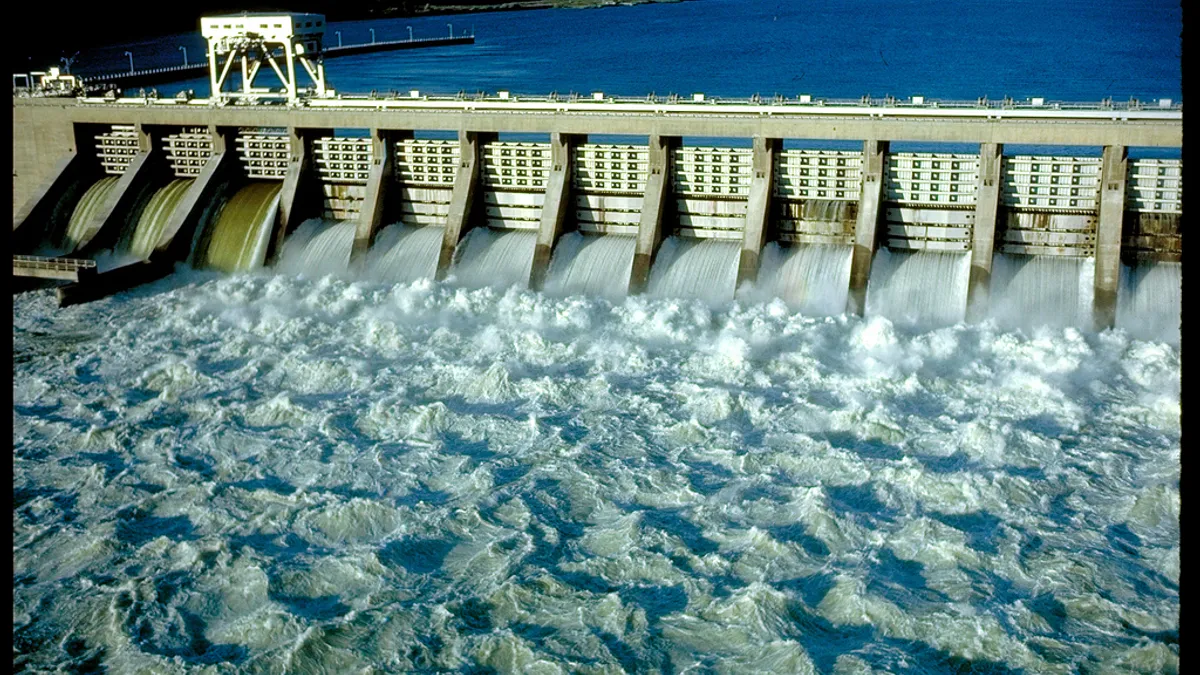Dive Brief:
- New data from The Analysis Group shows Massachusetts electric rates would rise $777 million annually under a plan that would allow the state's utilities to enter long-term contracts for Canadian hydroelectric power, Platts reported.
- Seeking to meet environmental requirements while keeping prices low, Mass. Gov. Charlie Baker (R) has introduced legislation to allow utilities to enter 15-25 year contracts to source one-third of their energy needs from the Canadian facilities.
- But the state is already on track to meet emissions goals, opponents say, and changing utility contract rules would be unfair to local generators who have invested billions of dollars.
Dive Insight:
Hydro power imported from Canada will raise Massachusetts electric rates by $777 million each year, according to a new report on the governor's plan that will allow utilities to source more of their power from the carbon-free plants.
The Analysis Group is predicting that transmission costs factored in power prices could reach $97/MWh, compared with average New England prices around $55/MWh. And the state is already on track to "far exceed" 2020 greenhouse gas goals, according to the report's author, Dr. Susan Tierney.
“The bottom line is clear – Massachusetts is on pace for power plants to far exceed their 2020 emissions goal under the Global Warming Solutions Act," said Tierney in a statement. The governor's proposal, in the form of Senate Bill 1965, "is simply not necessary to meet these goals, especially at the direct and indirect costs it would introduce into the region’s energy system.”
Tierney, now with The Analysis Group, is a former public utility commissioner in Massachusetts, as well as a former Assistant Secretary of Policy at the U.S. Department of Energy. The study was sponsored by the New England Power Generators Association, which is opposed to Gov. Baker's proposal.
The governor's office said that it stands behind its proposal despite the new data.
"We are confident that the hydro proposal will spur Massachusetts utilities to jointly, and competitively, solicit long-term contracts for small- and large- scale clean energy generation resources and associated transmission infrastructure, enabling the commonwealth to procure cost-effective resources and meet our Global Warming Solutions Act goals," said Katie Gronendyke, press secretary for the Massachusetts Department of Energy and Environmental Affairs.















